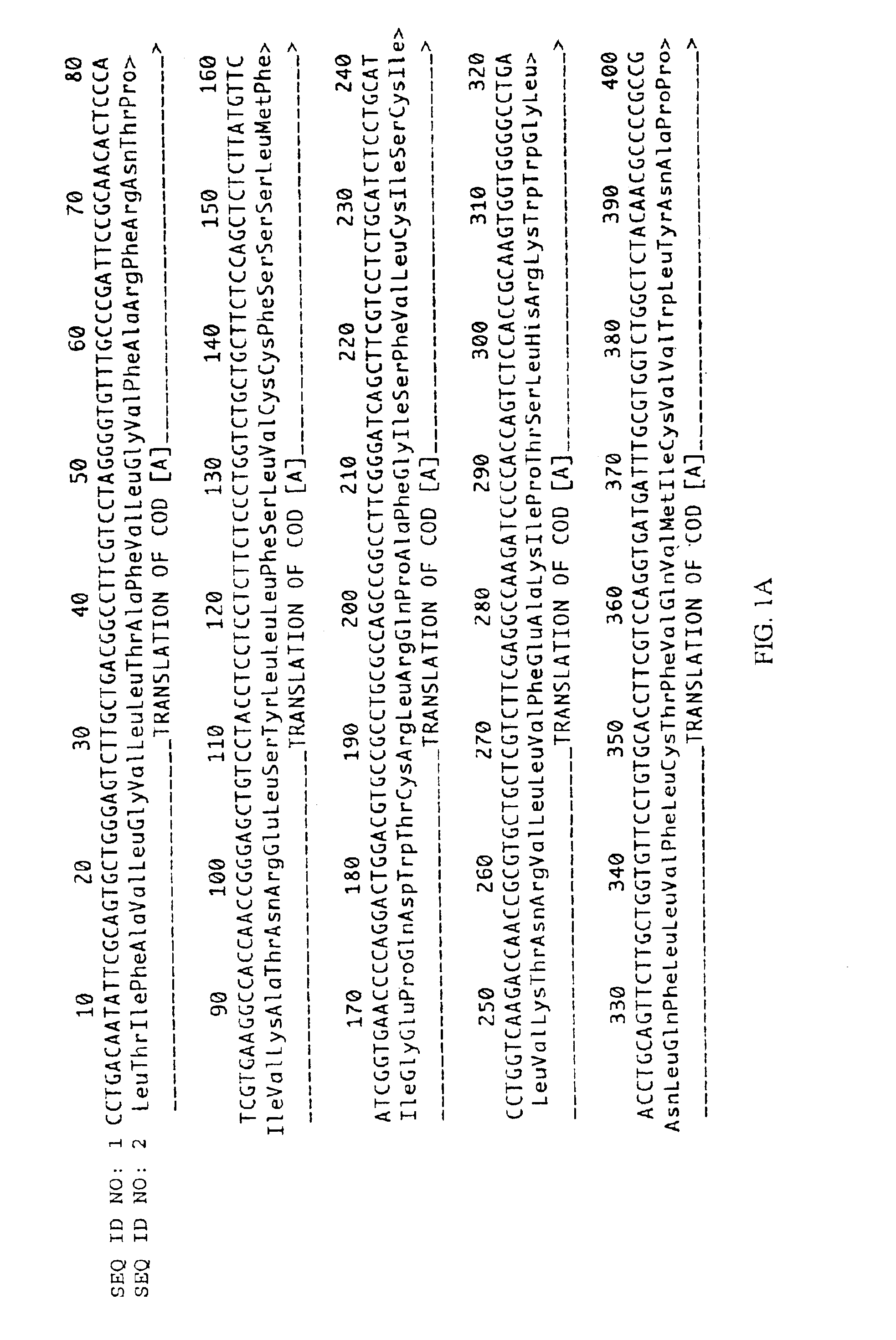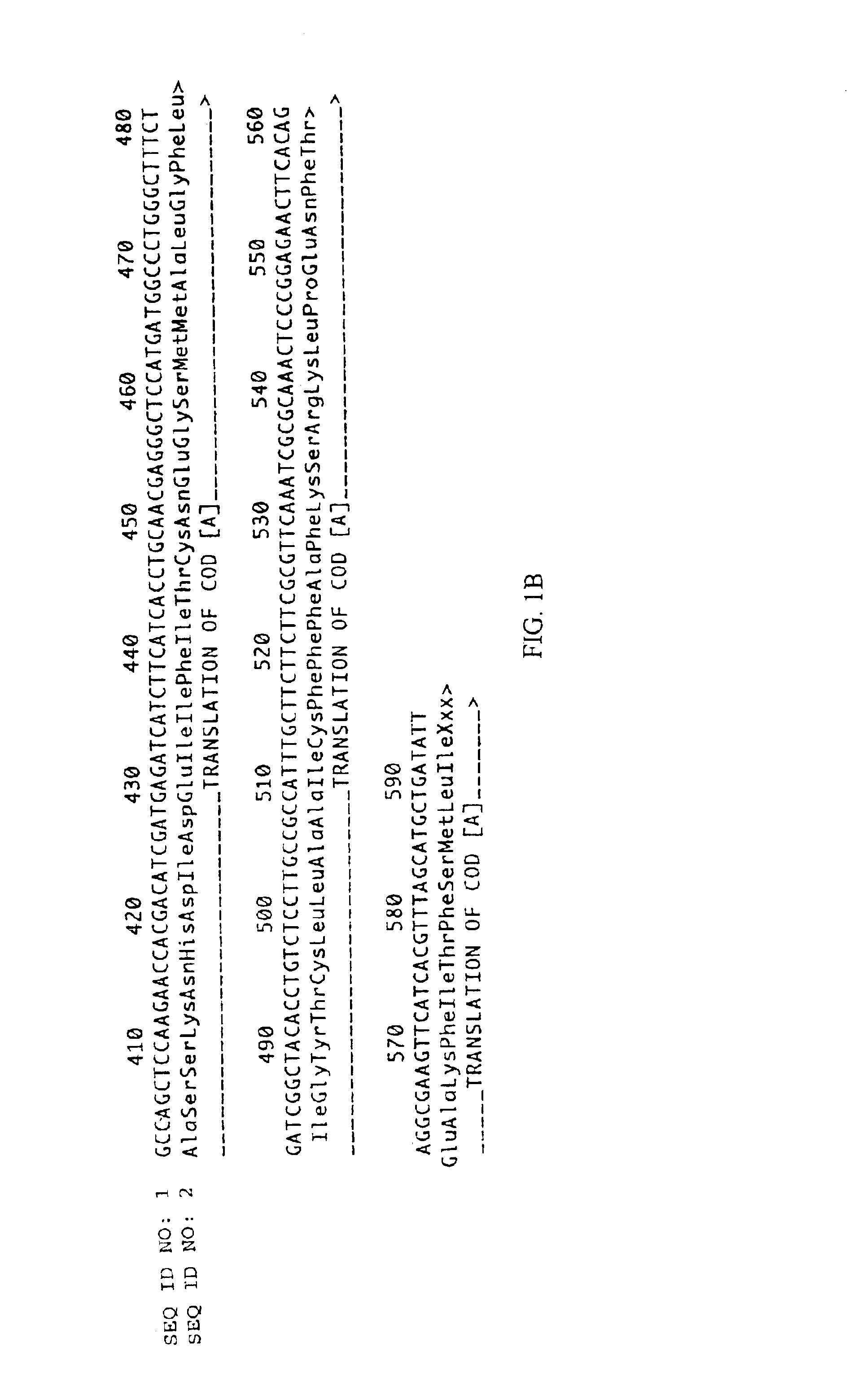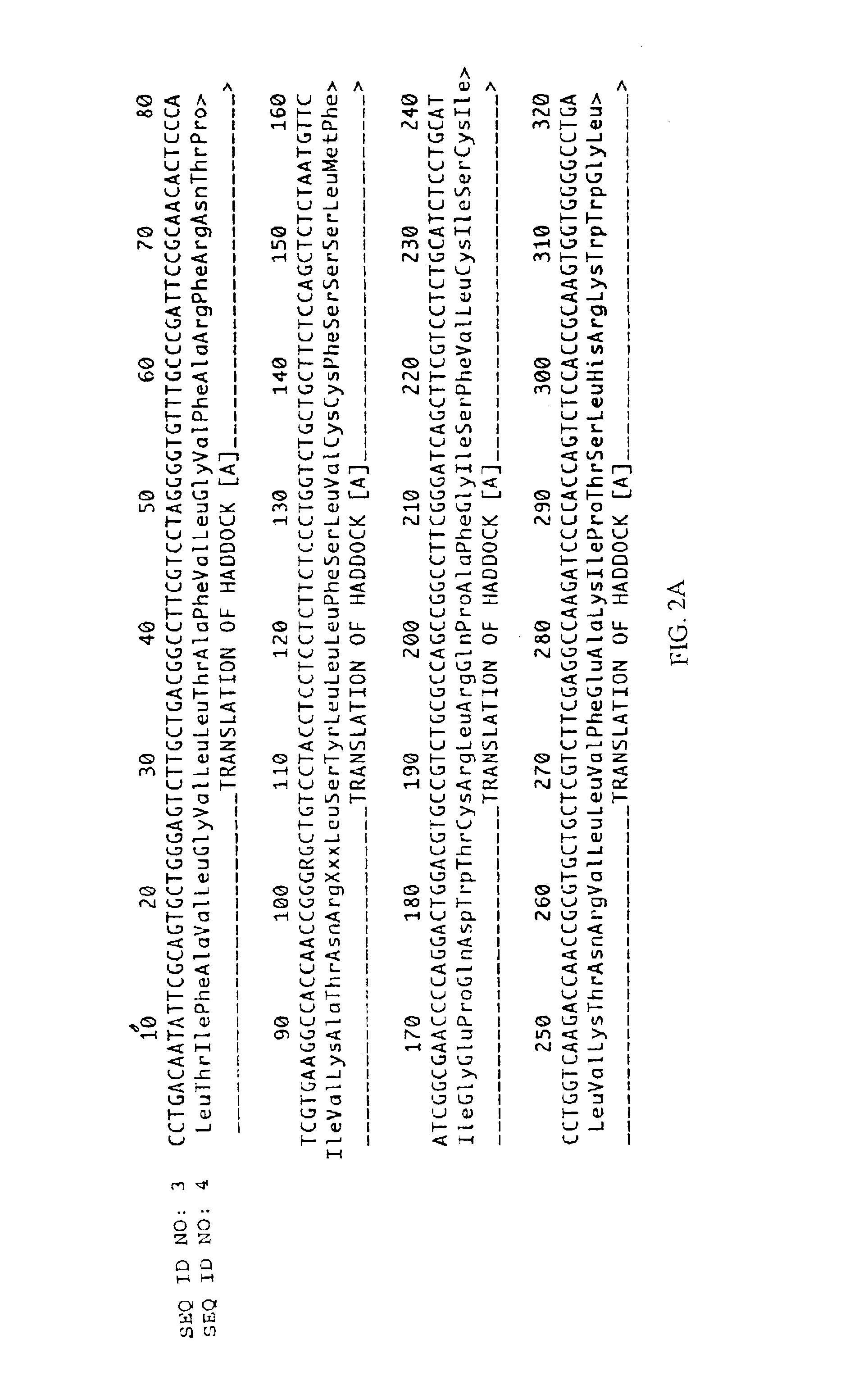Growing marine fish in fresh water
- Summary
- Abstract
- Description
- Claims
- Application Information
AI Technical Summary
Benefits of technology
Problems solved by technology
Method used
Image
Examples
example 1
Polyvalent Cation-Sensing Receptors (PVCRs) Serve as Salinity Sensors in Fish.
[0077]Polyvalent cation-sensing receptors (PVCRs) serve as salinity sensors in fish. These receptors are localized to the apical membranes of various cells within the fish's body (e.g., in the gills, intestine, kidney) that are known to be responsible for osmoregulation. A full-length cation receptor (CaR) from the dogfish shark has been expressed in human HEK cells. This receptor was shown to respond to alterations in ionic compositions of NaCl, Ca2+ and Mg2+ in extracellular fluid bathing the HEK cells. The ionic concentrations responded to encompassed the range which includes the transition from freshwater to seawater. Expression of PVCR mRNA is also modulated in fish after their transfer from freshwater to seawater, and is modulated by PVCR agonists.
[0078]Using nucleic acid amplification with degenerate primers, partial genomic clones of PVCRs have also been isolated from other fish species, including ...
example 2
Growth of Marine Fish in Freshwater Using the Methods of the Present Invention
[0080]Methods:
[0081]The following examples refer to APS Process I and APS Process II throughout. APS stands for “AquaBio Products Sciences®, L.L.C.” APS Process I is also referred to herein as “SUPERSMOLT™ I Process” or “Process I.” An “APS Process I” fish or smolt refers to a fish or smolt that has undergone the steps of APS Process I. An APS Process I smolt is also referred to as a “SUPERSMOLT™ I” or a “Process I” smolt. Likewise, APS Process II is also referred to herein as “SUPERSMOLT™ II Process” or “Process II.” An “APS Process II” fish or smolt refers to a fish or smolt that has undergone the steps of APS Process II. An APS Process II smolt is also referred to as a “SUPERSMOLT™ II” or a “Process II” smolt.
[0082]APS Process I: Marine fish are exposed to or maintained in freshwater containing 0.3-10.0 mM calcium and 0.5-10.0 mM magnesium ions. This water is prepared by addition of calcium carbonate an...
example 3
The Feed
[0103]Two general methods were used to prepare feed for consumption by fish as part of APS Process I and II. These two processes involve either reformulation of feed or addition of a concentration solution for absorption by the feed followed by a top dressing for palatability. This disclosure describes the methodology to prepare feed using each of these 2 methods.
[0104]Methods:
[0105]Feed Manufacture for Salmon Experiments
[0106]To reformulate feed, the ingredients are as follows: Base Diet was made using the following ingredients and procedure: 30% Squid (liquefied in blender), 70% Corey Aquafeeds flounder diet (powderized in blender). Ingredients were blended into a semi moist “dough” ball. Other ingredients including NaCl or PVCR active compounds were blended into the base diet by weight according to experimental parameters.
[0107]Moore Clark standard freshwater salmonid diet (sizes 1.2, 1.5, 2.0, 2.5, and 3.5 mm) can also be used. A top dressing was applied to the pellets s...
PUM
 Login to View More
Login to View More Abstract
Description
Claims
Application Information
 Login to View More
Login to View More - R&D
- Intellectual Property
- Life Sciences
- Materials
- Tech Scout
- Unparalleled Data Quality
- Higher Quality Content
- 60% Fewer Hallucinations
Browse by: Latest US Patents, China's latest patents, Technical Efficacy Thesaurus, Application Domain, Technology Topic, Popular Technical Reports.
© 2025 PatSnap. All rights reserved.Legal|Privacy policy|Modern Slavery Act Transparency Statement|Sitemap|About US| Contact US: help@patsnap.com



